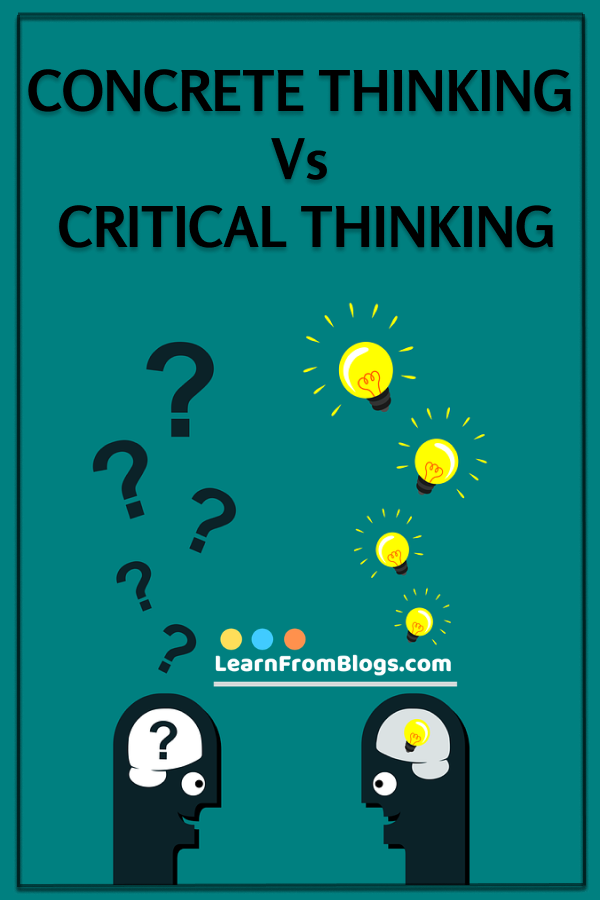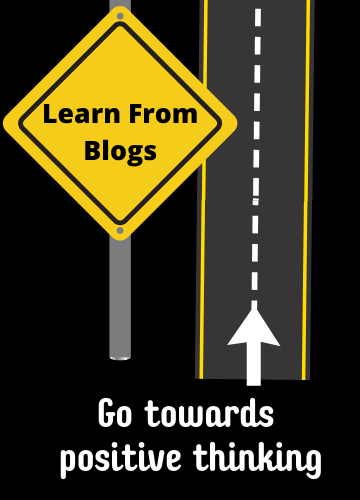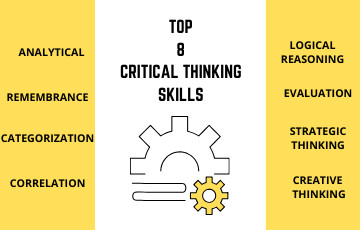
1. Good Analytics:
When you analyze a problem, you understand it better. Once you understand the problem, it becomes easy to formulate appropriate solutions.
Good analysis/analytical ability is always a top critical thinking skills that people look forward to.
2. Remembrance:
Your ability to remember and re-assemble information from your brain is a key skill in critical thinking. It helps you connect all scattered pieces of data in your brain to get the big picture.
3. Categorization:
To categorize problems based on any given criteria is a skill. It means you are trying to analyze and grasp the problem better.
4. Correlation:
Correlation is important to critical thinking for two reasons. First, correlation helps you find the connection between problem variables. Second is, you can find whether the data and arguments you collected apply to the problem. We need clarity to find suitable solutions.
5. Logical Reasoning:
Logical-reasoning makes us understand ‘what the fact is’ or ‘what the truth is’ behind everything. It commands your brain to see the truth beyond aesthetics. This ability to reason logically separates critical thinkers from the rest.
6. Evaluation:
Evaluation is an important critical thinking skill. By evaluating, you bring the needed credibility and trust to your findings and inferences.
7. Strategic Thinking:
Strategic thinking can bring new dimensions to the problems. Other then the usual process flow, strategic-thinking speeds up your problem-solving and critical thinking abilities.
8. Creative Thinking:
Creative thinking and critical thinking complement each other.
We consider creativity the most fun and interesting one among the top 8 critical thinking skills. This is where you bring fresh perspectives and innovative ideas to light.
The catchy phrases, stunning logos, sophisticated designs, and technologies we see today are all products of creative and critical thinking.
CONCRETE THINKING
Concrete thinking focuses on the basic and literal form of thinking. It is all about thinking of data, figures, statistics of specific items. It does not evaluate the theoretical representation of general ideas.
CAREER CHOICE: Concrete thinkers are generally working better than in groups. Many fields require concrete sequential learners like statistical analysis, accounting, banking, financial writer, business analyst, and insurance claims adjuster, etc.
CRITICAL THINKING
Critical thinking is a level up than analytical thinking. Critical thinkers exercise careful evaluation to determine the authenticity, precision, importance, certainty, and value of the problem. Then they break down all the information to connect every link to the solution. It explores every single element that could influence the conclusion.
CAREER CHOICE: Critical thinkers analyze a problem, situation, or scenario in an unbiased way to anticipate potential problems, and come to logical conclusions. Some of the world’s highest-paying jobs want critical thinker as its employee like business analysis, lawyer, accountant, judge, criminologist, logistic manager, etc.
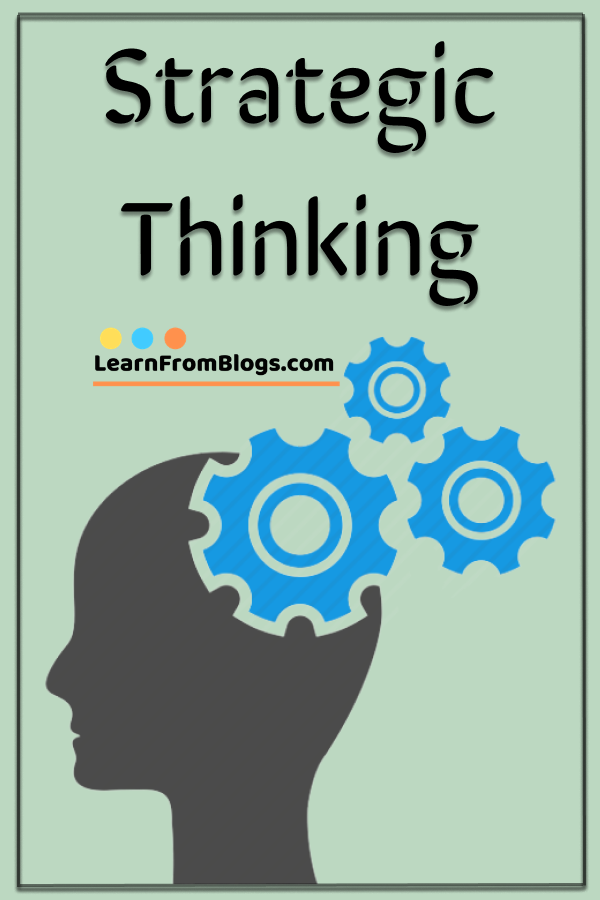
Dr. Albert Einstein mentioned, “The world as we have created it is a process of our thinking. It cannot be changed without changing our thinking.”
It shows what a thinker can do. Spread the knowledge of thoughts. The time will shape itself according to it.
To achieve your career goals, you need a plan. For that plan, you have to be a clear thinker. Until you access your brain to see beyond the generalize views of a particular situation, you could not come up with a plan to compete in today’s competitive world. You must think strategically about those things you want and the way that is going to get you there.
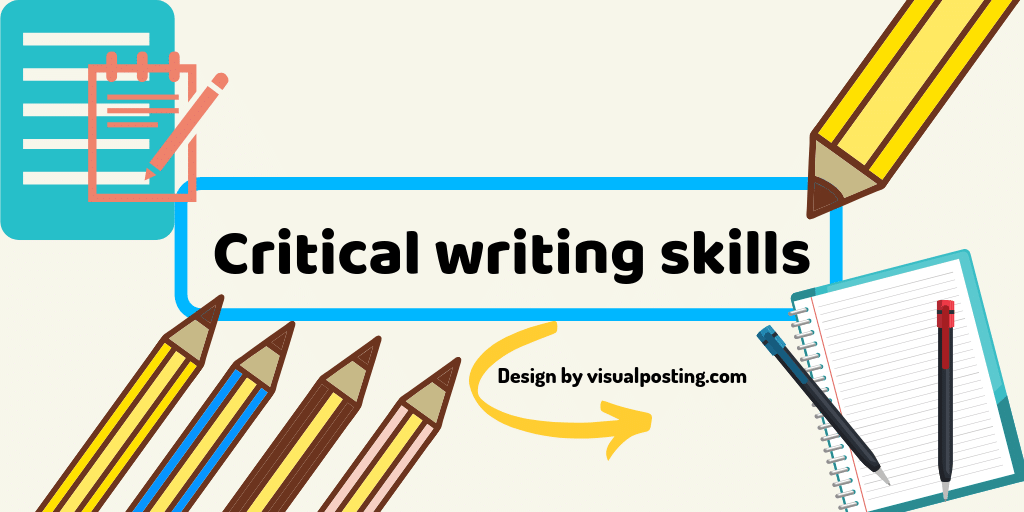
Critical writing is important for school and college students, authors and bloggers. Many people think that critical writing means to include criticism and sarcasm in their writings. But the real definition of critical writing is forming a conclusion on the basis of evidence.
To boost critical writing skills, one must find many viewpoints and evidence. More than one viewpoint will help you to get a better conclusion.
"The road to success and the road to failure are almost exactly the same." -- Colin R. Davis



